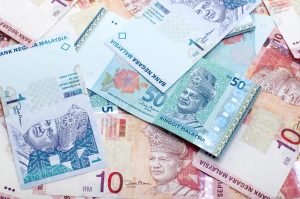Malaysia’s prime minister yesterday announced a series of measures to address the country’s cost of living crisis, including a cash handout for all adult citizens and a small cut to the price of state-subsidized petrol.
In a televised briefing, Anwar Ibrahim announced a one-time cash disbursement of 100 ringgit ($24) to all Malaysians aged 18 and above, which he said will be redeemable at more than 4,000 stores beginning on August 31. He added that the government will also freeze planned hikes in toll rates on 10 highways and increase its subsidies for RON95, the cheapest and most popular fuel, reducing the price from 2.05 ringgit ($0.49) per liter to 1.99 ringgit ($0.47).
“The government is sticking to its plan for targeted RON95 petrol subsidies with details to be announced end-September,” Anwar said, as per Bloomberg. “What’s certain is that just like the approach of targeted electricity subsidies, the government gives its assurance that ordinary citizens won’t be affected. In fact let me announce that the RON95 petrol price will fall for citizens.”
The cash handout is expected to reach around 22 million people and cost the government around 2 billion ringgit ($472 million),.
The cost of living has become an increasing subject of popular concern in Malaysia in recent months, which Anwar’s opponents have used to attack his government. As Reuters reported, yesterday’s announcement came ahead of a protest that opposition parties plan to hold in Kuala Lumpur on Saturday, which will call Anwar to step down “over escalating prices and a failure to deliver on promised reforms.” Police say that they expect between 10,000 and 15,000 people to attend the protest.
“I acknowledge the complaints and accept that the cost of living remains a challenge that must be addressed, even though we have announced various measures thus far,” Anwar said during yesterday’s announcement, adding that more initiatives to aid those in poverty will be launched today.
Yeah Kim Leng, an economics professor at Sunway University in Kuala Lumpur, told Al Jazeera that Malaysian households, especially low- and middle-income households, “will welcome the cost-of-living relief provided by the measures.”
Addressing the increasing prices of basic goods has been on Anwar’s agenda since he took office in late 2022, but he has also sought to reduce the spiraling expense of Malaysia’s elaborate system of cost-of-living subsidies, which cover everything from fuel and electricity to rice, flour, and cooking oil. These subsidies cost the Malaysian government around 64.2 billion ringgits ($15.2 billion) in 2023.
Just weeks into his term, Anwar announced a plan to review the subsidies, to ensure that they primarily benefit those most in need, rather than all segments of society. He said at the time that the purpose of such support was “to ease the burden of the poor and of course the rich and the industry should not be enjoying it.”
In recent weeks, as Reuters reported, Anwar’s administration has carried out a number of measures to boost government revenue. It has raised electricity tariffs on heavy users, including power-hungry data centers. It has also revised its sales tax and expanded the scope of its services tax, a move designed to “strengthen the country’s fiscal position by increasing revenue and broadening the tax base to improve the quality of the social safety net without burdening a majority of the people,” according to the Ministry of Finance.
However, critics have voiced fears that higher costs would eventually flow down to ordinary citizens, including lower- and middle-income earners. At a political rally in Alor Setar on July 17, former Prime Minister Mahathir Mohamad called on Anwar to step down, citing his governance failures, in particular his mismanagement of the national wealth, which had caused hardship for the Malaysian public.
“Today, everyone has gathered here because we face the same problem – our country is wealthy, but the people remain poor. This is clearly the result of incompetent governance,” Mahathir said.
Shortly after Anwar took office, I noted that “tackling concrete cost-of-living challenges, which cut across ethnic and religious lines, is a good way of winning broad support for his multi-ethnic Pakatan Harapan coalition, and defusing claims that it is seeking to undermine Malay privileges.” Conversely, however, failing to address these concerns – or being perceived to fail – could leave Anwar politically vulnerable to attacks from the right-wing Malay populists of the opposition Perikatan Nasional coalition
Anwar’s premiership is not seriously under threat, but he may continue to struggle to balance the imperative of reducing cost-of-living pressures for ordinary people and maintaining the government’s fiscal health.

































